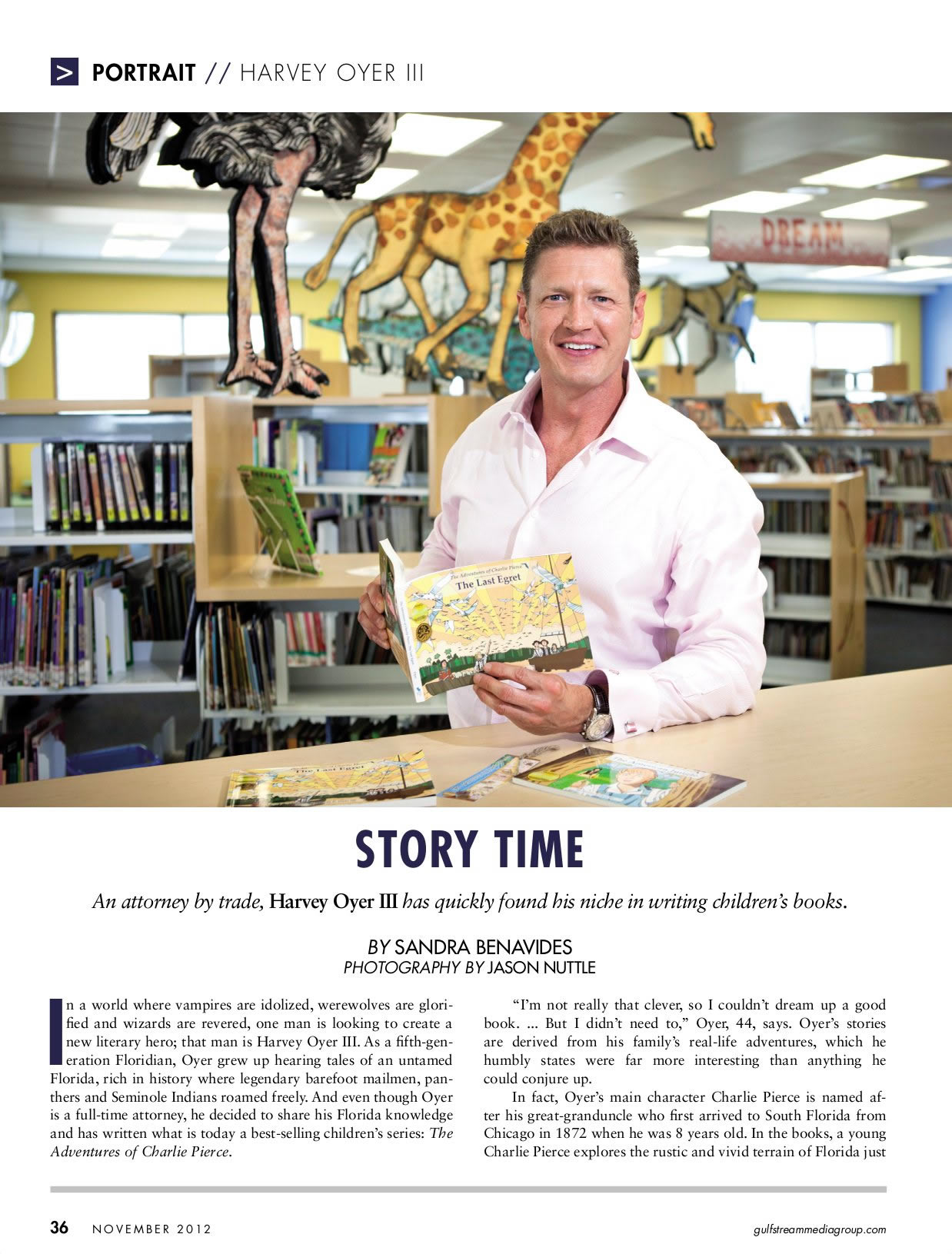By Scott Eyman | http://www.pbpulse.com
Harvey Oyer is a historian, an archaeologist, a lawyer, a fifth-generation Floridian. None of that seemed sufficient, so he became an author as well. Oyer’s new book The Last Egret continues the adventures begun by his book The Last Jungle.
The two books tell the story of Charlie Pierce, one of the original Barefoot Mailmen, who just happens to have been Oyer’s great grand-uncle.

The books were basically written to get kids excited about Florida and its history, and Oyer, formerly the chairman of the Palm Beach Historical Society, has found that the book has been welcomed by both teachers and kids, because they meet many of the Sunshine State’s teaching standards.
They get the kids dressed up as Charlie Pierce and Barefoot Mailmen, and weaving crafts out of palmetto fronds, like the Seminoles did. They can extract from a single book about two dozen different teaching elements. Teachers find it helpful and the kids find it entertaining.
Oyer, of West Palm Beach, didn’t learn about Pierce through a book, but through oral history.
When we were children we weren’t permitted to watch TV at dinnertime. We listened and sat down with the family. My father and my grandmother, who lived to be 101, would recount stories of the pioneer settlement of Florida, and many of them involved my uncle Charlie.
Years later, Oyer found that Pierce had kept a diary from the time he was 8 until his death in 1939 at the age of 75. He turned the diary into a book of 750 typed pages, after which it was discovered by a retired history professor, who realized it was a first-person account of life in Southeast Florida.
It is the primary text of the pioneer era in South Florida,
Oyer says.
Oyer came to write the books as a by-product of giving about 500 history lectures over the last dozen years. Invariably after these talks, someone would come up and say, “Have you written a book? You haven’t? Why not?”
I looked around and thought about where the void was, what would be the most useful book to write. And I decided that my mission is to change the way the next generation views Florida. Until we instill in them a fundamental knowledge of our flora, our fauna, our ecology, nothing will change and people will continue to think of themselves as New Yorkers or New Jerseyans and we’ll grow another generation with no sense of ownership in Florida, which is reflected in things like how we vote and how we preserve our water supply.
Oyer points out that the first known explorer in the New World was here, and St. Augustine was settled a century before Jamestown.
But talk to most people and they think Florida is an afterthought that came along in the 19th century. Florida has the richest history in the New World. I can understand if they don’t want to learn about it in Ohio, but we should certainly learn about it in Florida.
From his talks at schools, Oyer realized that facts and dates don’t appeal to children, so he structures his books as adventure stories, with lessons that can be absorbed while the kids are enjoying the adventure story.
When I decided to write the books, I had spoken to at least a hundred schools, and I knew which stories made the kids’ eyes light up and which made them look in the other direction. It was a market study.
Oyer started out with 3,000 copies of his first book, and was told by local authors that he would be warehousing those books the rest of his life. But Oyer is a digger and has sold 7,000 copies in two years, mostly out of his trunk.
There is a larger vision for the books, based on timeliness.
In many ways it’s a story of the Florida Everglades. 2010 has been declared the year of the Everglades. The Everglades is known worldwide, and the world is coming to grips more and more with the need to preserve this planet God has provided us with.
By Scott Eyman | http://www.pbpulse.com











